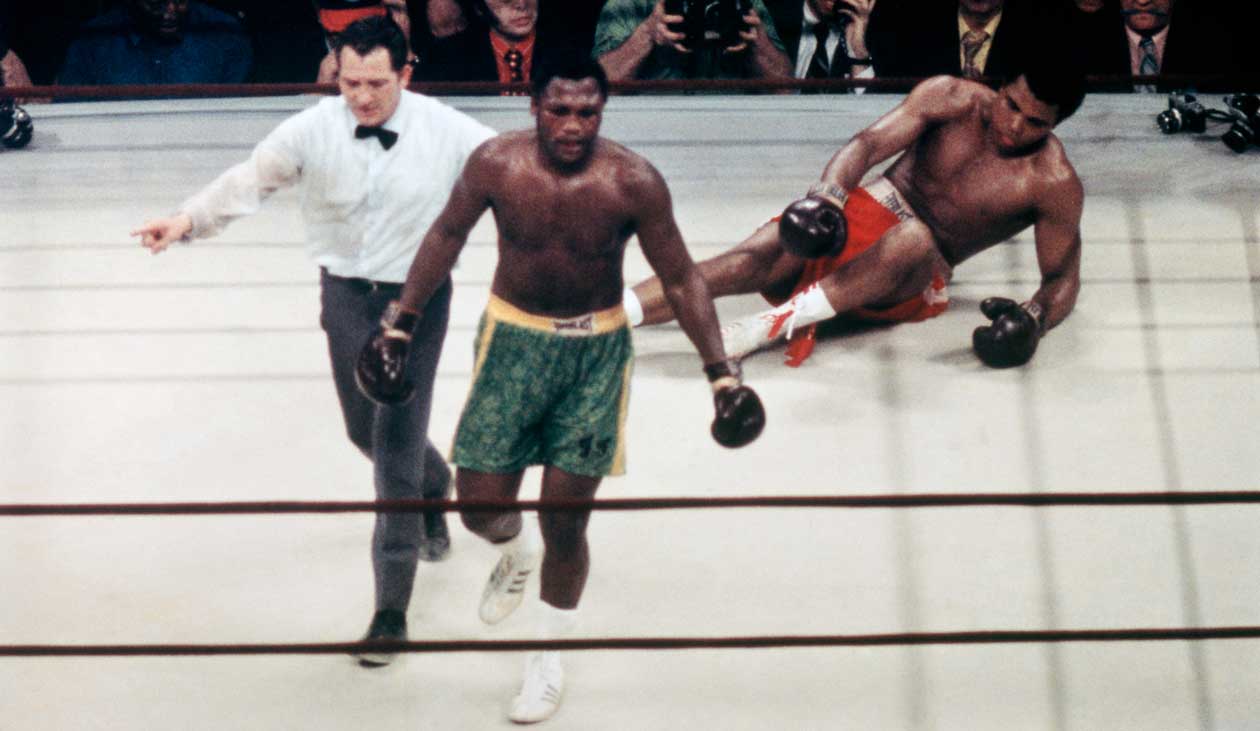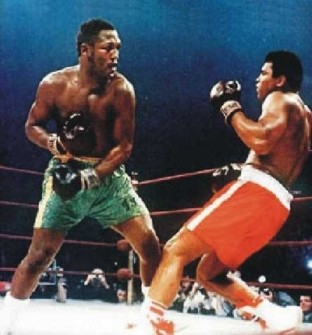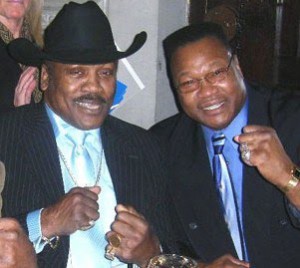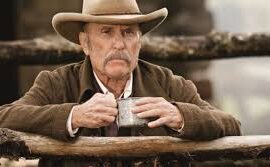
Fifty years ago this week, reality connected like a left hook.
I was still in Grade school when the “Fight of the Century” took place, on March 8, 1971, at Madison Square Garden in New York. It was a one-of-a-kind battle between two undefeated champions — Muhammad Ali and Joe Frazier.
Boxing was huge 50 years ago, thanks mainly to Ali. He was more than just The Beatles of boxing; such a hero I didn’t think there was any way he could lose to “Smokin’” Joe Frazier, despite three years of rust over his refusal to fight in Vietnam.

You couldn’t see the fight on TV; in Toronto, if you were older and rich, you could only see it on a closed-circuit screen at Maple Leaf Gardens. My best bet was to wait for the highlights to be shown a Saturday or three later on ABC’s Wide World of Sports. Media moved a lot slower back then– there was no Instagram or Twitter. Now you can spend a day watching every one of Ali’s fights on YouTube.
There’s a lot of hype in sports. The greatest sporting events probably depend on how old you were when you saw them. For one generation of Toronto kids, it would be the Blue Jays World Series victories in 1992 and ’93; for another, it will be The Raptors taking the NBA title in 2019.
For me, the year-and-a-half between the Ali-Frazier fight and The Canada-Russia hockey Summit Series still burn as the sports stunners that most electrified my central nervous system.
advertisement
I met Ali, a thrill I’ll never forget and one I’ve written about before. Years later I also was at a press conference with Frazier. That story below.
In 2010, Frazier was at a Television Critics Association press tour session along with fellow boxer Larry Holmes. Both were promoting “Facing Ali,” a documentary by Vancouver-based filmmaker Derik Murray profiling ten fighters who faced “The Greatest.”
Frazier and Holmes sat and talked. We were told by the two men that Ali wasn’t always the nicest guy in the world. Leading up to the fight, Ali called Frazier a gorilla, going so far as to very publicly spar against a guy in a monkey mask.
“You guys liked it,” Holmes reminded us. “You guys thought it was funny. We didn’t think it was funny at the time.”

Holmes understood that Ali made them all rich with his mouth. “He can talk, and he made people like him. He made people that didn’t like him, he made them like him.”
Except maybe Joe Frazier. At one point, Holmes tried to get Frazier to say he loved Ali. The exchange was poignant, theatrical, intimate, meaningful and seemed very real. From the transcript:
LARRY HOLMES: …I love him now, and Joe Frazier might say he don’t like Ali, but Joe loves Ali too.
JOE FRAZIER: Love seeing him falling down.
LARRY HOLMES: You love Ali. Come on. Tell the people you love Ali.
JOE FRAZIER: Of course I love him, I mean, because, number one, we were the guys that start off that big purse. I went to the president —
LARRY HOLMES: Not because he gave you $20 million. It wasn’t the money, Joe, was it?
JOE FRAZIER: Yeah, but I love everybody, and let’s say number one. I’ve done a lot for him. He didn’t — I don’t think he likes me.
LARRY HOLMES: Ali loves you, too, because you gave him $20 million too.
JOE FRAZIER: No. He don’t love me. He called me ugly, and I was just trying —
LARRY HOLMES: You wanted Ali to tell you you was pretty?
JOE FRAZIER: Why not?
After the press conference, HBO officials ushered the two fighters off stage to make room for the next session. The were led into a “green room” behind the stage area, and I scrambled out of my chair in the ballroom and ran around to try and at least shake the hand of one of these champs.
Frazier seemed to age 20 years in the trip from the stage to the green room. He walked slowly, with the aide of a cane, and took his seat in his wheelchair. On his head was a giant black stetson. He brandished the cane in his hand on the way out and did not stop to talk to reporters. Within a year he was dead at 67.

There are stories about Frazier picking Ali up in his car and the two driving together promoting that first fight. These guys hated each other in the ring, but for some reason you want to believe, 50 years later, with both long gone, that they loved each other as well.
The great Newark Star-Ledger sports journalist Jerry Izenberg — one of the few surviving sports scribes ringside for all three fights — put it best. Writing on a tight deadline about the war that was their third and final fight, the now 90-year-old reporter typed:
Muhammad Ali and Joe Frazier did not come to Manila last night to fight for the WBC heavyweight title. Nor did they come here to fight for the championship of the planet. They fought last night as though they were in a telephone booth on a melting ice floe. That was all the space they needed. They were fighting for the prize that had always eluded them — the championship of each other. As far as I’m concerned they never settled it.





